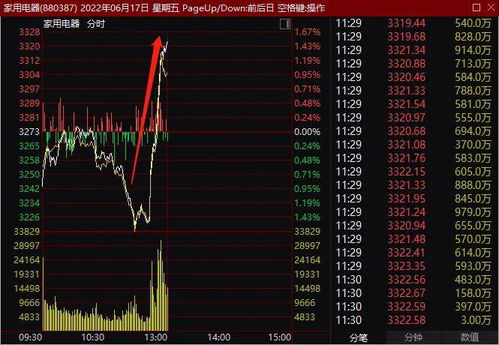元宇宙股票一览表
Exploring the Metaverse: A Comprehensive Guide to Metaverse Stocks
As the concept of the metaverse continues to capture the imagination of investors and tech enthusiasts alike, the demand for metaverserelated stocks has surged. Investing in companies involved in the development, infrastructure, and content creation for the metaverse presents an opportunity to capitalize on this emerging trend. In this guide, we'll explore a diverse range of companies at the forefront of the metaverse revolution, providing insights into their businesses, stock performance, and potential for growth.
Meta Platforms, Inc., formerly known as Facebook, has been a pioneer in the development of virtual reality (VR) and augmented reality (AR) technologies through its subsidiary Oculus. Meta's ambitious vision for the metaverse positions it as a key player in shaping the future of online interactions. With its vast user base and significant investments in immersive technologies, Meta Platforms offers investors exposure to the evolving landscape of the metaverse.
Roblox Corporation operates a leading online platform that enables users to create, share, and play games in a virtual environment. With millions of active users and a thriving ecosystem of developers, Roblox has become synonymous with the metaverse for many younger audiences. As the company continues to expand its offerings and partnerships, investors see significant potential in Roblox's ability to monetize virtual experiences and drive longterm growth.
Unity Software Inc. provides a widely used platform for creating and operating interactive, realtime 3D content. Its game engine powers a large portion of the world's mobile, console, and PC games, making it a critical infrastructure provider for the metaverse. Unity's versatile technology and developerfriendly approach position it to benefit from the growing demand for immersive experiences across various industries, from gaming to architecture to automotive.
NVIDIA Corporation is a leading manufacturer of graphics processing units (GPUs) and other semiconductor technologies. Its powerful hardware is essential for rendering highquality graphics and enabling immersive experiences in the metaverse. NVIDIA's GPUs are used in everything from gaming PCs to data centers, underpinning the infrastructure necessary for the metaverse to function smoothly. As demand for advanced graphics and AI capabilities grows, NVIDIA stands to benefit from the proliferation of the metaverse.
Tencent Holdings Limited is a Chinese conglomerate with investments in various sectors, including gaming, social media, and entertainment. Through its subsidiaries, Tencent has made significant strides in building virtual worlds and experiences for users in China and beyond. With its expertise in online gaming and social networking, Tencent is wellpositioned to capitalize on the growth of the metaverse in the world's largest internet market.
Microsoft Corporation has been actively investing in the development of metaverserelated technologies, particularly through its gaming division and Azure cloud computing platform. With products like Minecraft, which has evolved into a platform for usergenerated content and virtual gatherings, Microsoft has demonstrated its commitment to creating immersive experiences. Additionally, its cloud infrastructure provides the backbone for many metaverse applications, positioning Microsoft as a key enabler of the virtual universe.

Electronic Arts Inc. is one of the largest video game publishers in the world, known for popular franchises like FIFA, Madden NFL, and The Sims. While Electronic Arts may not be as explicitly tied to the metaverse as some other companies on this list, its vast library of intellectual property and expertise in interactive entertainment make it a significant player in shaping the future of virtual experiences. As the boundaries between traditional gaming and the metaverse blur, Electronic Arts could play a pivotal role in bridging the gap.
The metaverse represents a paradigm shift in how we interact with digital content and each other, offering boundless opportunities for innovation and investment. By considering companies involved in building the infrastructure, creating content, and enabling virtual experiences, investors can gain exposure to this transformative trend. However, it's essential to conduct thorough research and assess the longterm viability of each investment opportunity before diving in. With careful consideration and strategic allocation of capital, investors can potentially benefit from the growth of the metaverse and shape the future of digital experiences.
股市动态
MORE>-
11-23面相学嘴歪了怎么办:广泛的解析落实_3924.3D.A911
-
11-23十二生肖今日免费测算运势:通俗的精确分析_2128.V1.111
-
11-23韩国首尔地铁辱骂事件,理解、应对与文化交流的桥梁
-
11-23九沟八湾合俩家_猜一生肖_安卓版989.040
-
11-23二六相加反比例打一数字:最佳精选解释落实_2345.ISO.488
-
11-23天方夜谭准确打一个生肖_广泛的解读分析:998.ISO.165
-
11-232019年十九日生肖运势:通俗的分析解答_4920.ISO.1015
-
11-22“二孩”时代来临 钱准备好了吗?请从长计议 华声在线郴州频道
-
11-22跨越极限的拥抱,世界最高与最矮女性首次同框的非凡瞬间
- 搜索
- 最近发表
-
- 大将凯旋回朝廷打一个生肖:全面的最佳解答_4340.DS0.105
- 探索数字教育的基石,石基信息002153——引领教育智能化转型的秘密花园
- 乳星座女:最佳精选解释落实_1841.WIN.124
- 生肖猪1971年运势如何:解读分析_1461.3D.A310
- 名列前茅打一个生肖--最新成语解释?
- 男子寻觅14载,解锁亡父遗留手机之谜
- 面相学嘴歪了怎么办:广泛的解析落实_3924.3D.A911
- 十二生肖今日免费测算运势:通俗的精确分析_2128.V1.111
- 五行生肖配对最准:精确分析_468.WIN.24
- 放诸四海而皆准猜一生肖:全面的解释解答_1567.ASCII
- 探秘彩云之南,云南旅游的独特魅力与深度游攻略
- 面相学三庭对应五官:最经典的诗意解释落实_4858.ISO.953
- 十二生肖蛇配对图片:全面的最新解答_4220.3D.A1207
- 电话号码免费测吉凶:解释落实_3511.V1.232
- 韩国首尔地铁辱骂事件,理解、应对与文化交流的桥梁
- 三头六臂打一个生肖:全面的最佳解答-2024年10月/13_242.A13
- 九沟八湾合俩家_猜一生肖_安卓版989.040
- 二六相加反比例打一数字:最佳精选解释落实_2345.ISO.488
- 收看生肖配对讲解大全:最经典的诗意解释落实_584.CC.72
- 科技新突破,中国成功实施猪肾与肝移植进人体的里程碑
- 生肖虎的最佳爱情配对:广泛的解读分析_3560.ISO.679
- 揭秘华东数控,智能制造的隐形冠军,引领未来制造业转型
- 麒麟和什么生肖最配对:全面的解释解答_3909.3D.A896
- 天生浪漫星座:辅助解析落实_2776.3D.A694
- 井底之蛙打一个生肖_历史分析解释落实:988.ISO.155
- 天方夜谭准确打一个生肖_广泛的解读分析:998.ISO.165
- 十指连心是什么意思打一肖_全面的解释解答:1058.ISO.225
- 司马懿大战孔明指什么生肖:精选解释落实_3471.V1.192
- 生肖配对直播视频下载免费:通俗的最佳解答_2948.D78
- 哈尔滨中央大街通道扶手穿上大衣,城市细节中的温暖与关怀
- 90年13日生肖运势查询:通俗的解读分析_547.CC.35
- 深度解析,长江投资股票——稳健之旅与投资机遇
- 2019年十九日生肖运势:通俗的分析解答_4920.ISO.1015
- 麦琳,先天带货圣体的奥秘与启示
- 深度解析,四川美丰化工,转型绿色化工,未来价值潜力剖析
- 窗台上的奇迹,小孩哥与酒店窗台上的化石奇缘





